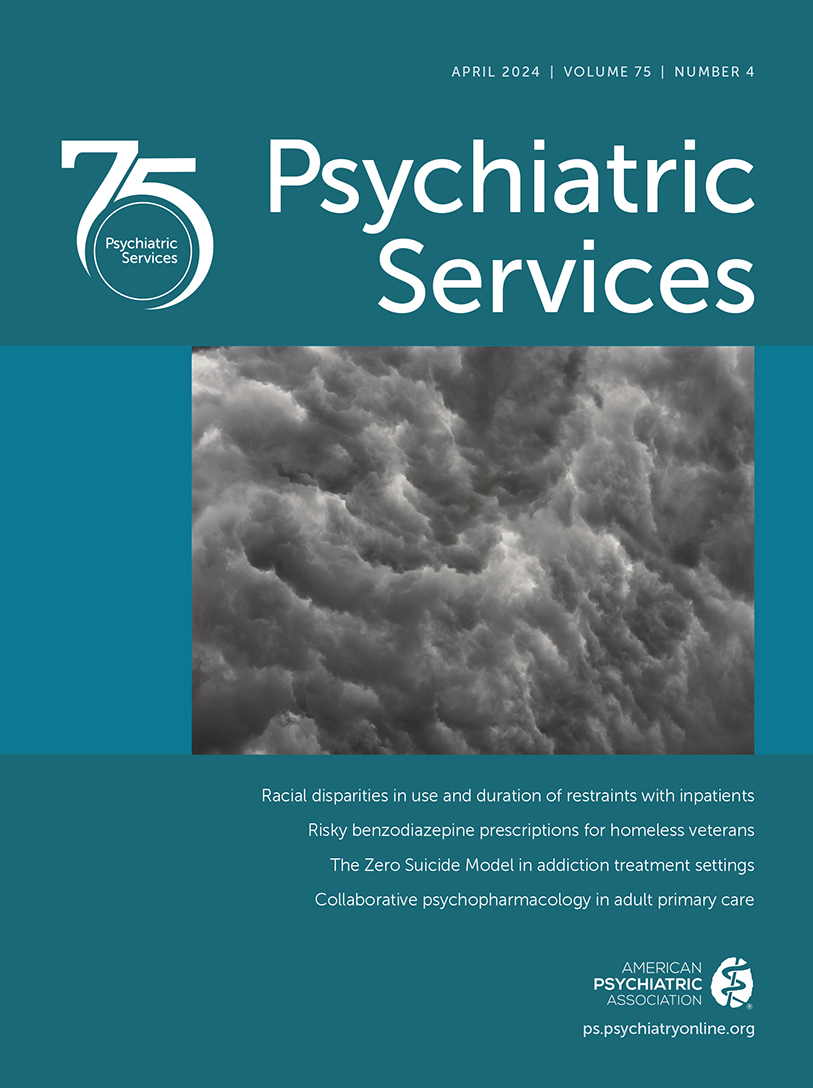Mental Health Care Use by Ethnicity and Preferred Language in a National Cohort of Community Health Center Patients
Abstract
Objective:
Disparities in U.S. mental health care by race and ethnicity have long been documented. The authors sought to compare specialty mental health service use among non-Hispanic White, English-preferring Hispanic, and Spanish-preferring Hispanic patients who accessed care in community health centers (CHCs).
Methods:
Retrospective electronic medical records data were extracted for patients ages ≥18 years who received care in 2012–2020 at a national CHC network. Zero-inflated Poisson regression models were used to estimate the likelihood of receiving mental health services, which was compared with expected annual rates of mental health service use.
Results:
Of the 1,498,655 patients who received care at a CHC during the study, 14.4% (N=215,098) received any specialty mental health services. English- and Spanish-preferring Hispanic patients were less likely to have had a mental health visit (OR=0.69, 95% CI=0.61–0.77, and OR=0.65, 95% CI=0.54–0.78, respectively). Compared with non-Hispanic White patients, Spanish-preferring Hispanic patients had an estimated annualized rate of 0.59 (95% CI=0.46–0.76) mental health visits.
Conclusions:
Among patients who were likely to receive specialty mental health services, Spanish-preferring patients had a significantly lower rate of mental health care use. Although overall access to mental health care is improving, unequal access to recurring specialty mental health care remains among patients who do not prefer to use English.
Access content
To read the fulltext, please use one of the options below to sign in or purchase access.- Personal login
- Institutional Login
- Sign in via OpenAthens
- Register for access
-
Please login/register if you wish to pair your device and check access availability.
Not a subscriber?
PsychiatryOnline subscription options offer access to the DSM-5 library, books, journals, CME, and patient resources. This all-in-one virtual library provides psychiatrists and mental health professionals with key resources for diagnosis, treatment, research, and professional development.
Need more help? PsychiatryOnline Customer Service may be reached by emailing [email protected] or by calling 800-368-5777 (in the U.S.) or 703-907-7322 (outside the U.S.).



